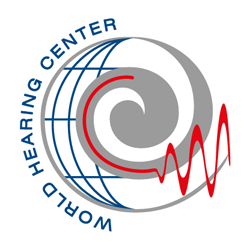Current Issue
Volumes and Issues
For Authors
Manuscript Guidelines
Review Process
Conflict of Interest
Copyright
About the Journal
Editorial Board
Aim and Scope
Policy and Ethical Guidelines
Promotion of the Journal
Print-Version Subscription
Publisher and Contact Information
Contact Information
Sign in as an AUTHOR/REVIEWER
EDUCATIONAL AUDIOLOGY: METHODOLOGY FOR AUDITORY
PROCESSING DISORDERS
1
Royal Dutch Kentalis, Department of audiology, Eindhoven, The Netherlands
Publication date: 2011-09-30
Corresponding author
Erwin Baas
Erwin Baas, Royal Dutch Kentalis, Department of audiology, Eindhoven, The Netherlands, e-mail: e.baas@kentalis.nl
Erwin Baas, Royal Dutch Kentalis, Department of audiology, Eindhoven, The Netherlands, e-mail: e.baas@kentalis.nl
J Hear Sci 2011;1(3):52-53
KEYWORDS
TOPICS
ABSTRACT
Auditory Processing Disorders (APD) are difficult to define and diagnose, due to correlations and co-morbidities with other disorders. Children with APD need and deserve an adequate diagnosis, since that will open ways for effective remediation.
In this presentation the definition of APD and its correlations will be presented and discussed. Based on that the screening
and diagnosis of APD will be presented, with an attempt to unravel the muddle of co-morbidity. The major need of educational practice, after a diagnosed APD, is how to translate this diagnosis into effective remediation. Evidence-based methods for
diagnosis and treatment of APD will be summarized and discussed. Remediation is often categorized in direct training, compensation strategies and adjustment of the environment. This categorization will be discussed and reported effects of remediation for APD will be reviewed: what is the effect in practice on educational performance of children with APD?
REFERENCES (7)
1.
American Speech-Language-Hearing Association. (2005). (Central) Auditory Processing Disorders [Technical Report]. Available from www.asha.org/policy.
2.
World Health Organization (WHO). International classification of functioning, disability, and health: children and youth version. 2007.
3.
Witton C: Childhood auditory processing disorder as a developmental disorder: the case for a multi-professional approach to diagnosis and management. Int J Audiol, 2010; 49(2): 83–87.
4.
Dawes P, Bishop D: Auditory processing disorder in relation to developmental disorders of language, communication and attention: a review and critique. Int J Lang Commun Disord, 2009; 44(4): 440–65.
5.
McArthur GM: Auditory processing disorders: can they be treated? Curr Opin Neurol, 2009; 22(2): 137–43.
6.
Lemos IC, Jacob RT, Gejão MG et al: Frequency modulation (FM) system in auditory processing disorder: an evidencebased practice? Pro Fono, 2009; 21(3): 243–48.
7.
Johnston KN, John AB, Kreisman NV et al: Multiple benefits of personal FM system use by children with auditory processing disorder (APD). Int J Audiol, 2009; 48(6): 371–83.
Share
RELATED ARTICLE
We process personal data collected when visiting the website. The function of obtaining information about users and their behavior is carried out by voluntarily entered information in forms and saving cookies in end devices. Data, including cookies, are used to provide services, improve the user experience and to analyze the traffic in accordance with the Privacy policy. Data are also collected and processed by Google Analytics tool (more).
You can change cookies settings in your browser. Restricted use of cookies in the browser configuration may affect some functionalities of the website.
You can change cookies settings in your browser. Restricted use of cookies in the browser configuration may affect some functionalities of the website.



